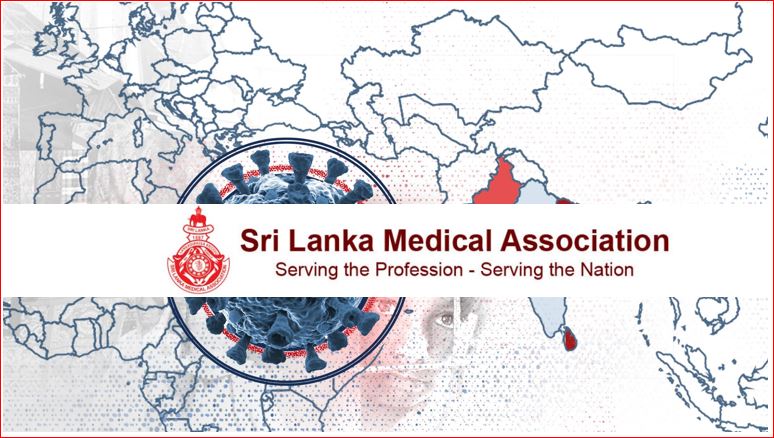SLMA gravely concerned & writes to Prime Minister over allowing Online Sales of Alcohol in Sri Lanka. Request NOT to provide permission for online sales of Alcohol / Liquor
The Sri Lanka Medical Association writes to Prime Minister Mahainda Rajapaksa over allowing Online Sales of Alcohol in Sri Lanka. The Sri Lanka Medical Association SLMA is gravely concerned of the reported moves to allow internet / online sales of alcohol, which have been announced by the Department of Excise at a Press Conference recently. SLMA assume that the Excise Department is aware that the National Authority on Tobacco and Alcohol Act (NATA) No. 26 of 2006 expressly prohibits advertising alcohol in the internet. SLMA request the government NOT to provide permission for online / internet sales of alcohol which will make matters worse for all Sri Lankans already suffering from many hardships due to Covid-19 pandemic.
SLMA says that studies have shown that the annual economic costs of alcohol far outweighs the tax income. Therefore, each day that alcohol is not sold in Sri Lanka will bring net economic benefits to the government and the people. It is well known that alcohol use is associated with poverty, violence against women, injuries, suicides and many illnesses, providing easy access to alcohol will amplify these problems at a time which is difficult for both the government and the people.

Full Letter – We wish to place on record our sincere appreciation for the steps taken by you to disallow the sale of alcohol through retail outlets during this very difficult period. This is a major relief to many families who would have otherwise suffered health, economic and other consequences of alcohol during the past few weeks.
However, The Sri Lanka Medical Association is gravely concerned of the reported moves to allow internet sales of alcohol, which have been announced by the Department of Excise at a Press Conference recently. We assume that the Department is aware that the National Authority on Tobacco and Alcohol Act (NATA) No. 26 of 2006 expressly prohibits advertising alcohol in the internet. Internet sales will also circumvent the age, time and place restrictions mandated for alcohol sales in this country, through the Excise Ordinance and the NATA Act.
The Department of Exercise has brought forward many unsubstantiated arguments to support this move, put forward previously by the alcohol industry against alcohol control measures in Sri Lanka. It is especially concerning that the Deputy Commissioner of Law Enforcement of the Excise Department is claiming on television that the production and sale of illicit alcohol has gone up within the last two weeks, to an extent that warrants the government to by-pass the laws of the country and allow internet sales of alcohol.
Such spokespersons for the department should provide concrete evidence for such claims, including the volumes, locations and the harm caused by such illicit alcohol during the past two weeks. They should also provide evidence on the volumes and where the claimed hoarding and illegal sales (selling previously purchased alcohol at high prices) is taking place.
We also wish to point out that the primary task of the Excise Department and its spokesperson is enforcing the laws related to alcohol in Sri Lanka, especially the laws on illicit alcohol. If they know the extents and the locations of production and the points of sale so precisely, they should be raiding such locations and prosecuting the perpetrators, rather than issuing press statements helpful to the alcohol industry, and at the same time implying the Department cannot enforce its own mandate.
You would also agree sir, that the groups that use illegal alcohol is very different from the groups consuming legal alcohol. Very few people who consume legal alcohol will turn to illegal alcohol when there is a scarcity or a price increase.
The Department of Excise also claims that large amounts of money is lost to the government as tax revenue during this period. This is only one side of the story. Studies in Sri Lanka has shown that the annual economic costs of alcohol far outweighs the tax income. Therefore, each day that alcohol is not sold in Sri Lanka will bring net economic benefits to the government and the people.
Therefore, we earnestly request the government not to provide permission for internet sales of alcohol which will make matters worse for all Sri Lankans already suffering from many hardships due to Covid-19 pandemic. As it is well known that alcohol use is associated with poverty, violence against women, injuries, suicides and many illnesses, providing easy access to alcohol will amplify these problems at a time which is difficult for both the government and the people.

